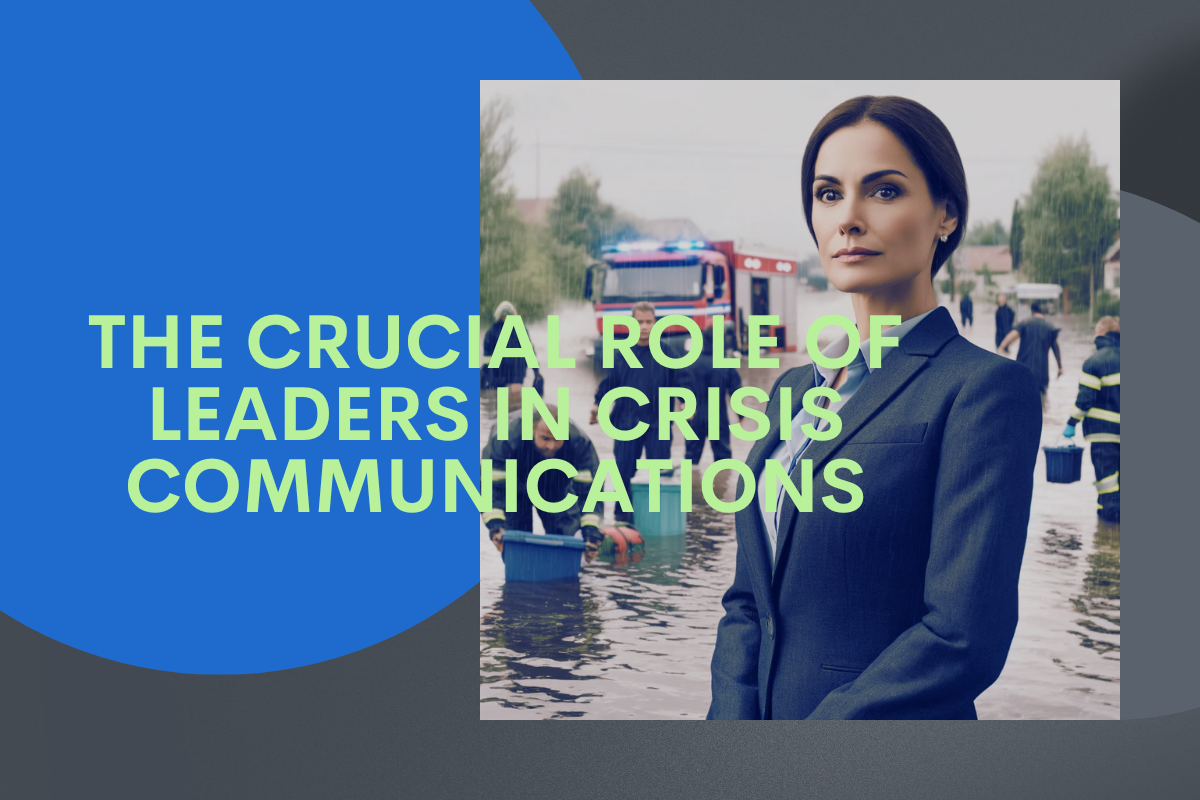The recent floods in the UAE served as a stark reminder of the importance of effective crisis communication. Leaders across all sectors – government, businesses, and communities – were thrust into the spotlight, tasked with keeping their stakeholders informed and safe. Some shone, and some fell a bit short. When there are no clear communications and follow-through, it leaves your customers/clients in limbo, which is NEVER a good idea.
Here’s how leaders can effectively manage communications during such challenging times.
Be Proactive
The first hallmark of effective crisis leadership is proactivity. During a crisis, a clear and steady voice is paramount. Leaders must be decisive, take control of the situation, establish a crisis management team and plan accordingly. This includes having a robust crisis communication plan that can be activated quickly. During the recent UAE floods (unprecedented though it was), proactive communications from government officials via social media and press briefings helped manage public expectations and disseminate important safety information.
Ensure Transparency
Transparency is crucial in maintaining trust during a crisis. Leaders must provide clear, accurate, and timely information to their stakeholders (all of them – both internal and external). Be upfront and honest with them. Withhold information only if absolutely necessary, but explain the reasoning behind any decisions. Misinformation can lead to confusion and erode trust. Here in the UAE, officials were commendably transparent about the evolving situation, which helped in coordinating rescue operations and relief efforts efficiently. They supported community initiatives. The airlines and real estate developers, on the other hand, fell short. They did not communicate with their clients directly or on their website. Follow-through on these messages too were lacking in some cases.
Show Empathy
Leaders must show empathy and concern for those affected. Acknowledge the anxiety and fear your stakeholders might be feeling. They should express empathy for those affected and communicate their commitment to resolving the situation. This humanises their approach, helping to strengthen connections with their audience.
Coordinate Effectively
A crisis often requires coordination between various stakeholders, including government entities, emergency services, and the private sector. Effective leaders act as a linchpin in this coordination effort. They should be prepared to take responsibility for the organization’s actions during the crisis. Avoid blaming others or deflecting concerns. A good example of this is the recent open letter from Sir Tim Clark of Emirates.
Be Adaptable
Finally, adaptability is essential. Crises (by its definition) are unpredictable, and leaders must be prepared to alter their strategies as situations evolve. This includes adapting communication strategies to new developments. During the floods, UAE leaders quickly adapted to the changing needs of the situation, which was vital for effective crisis management.
Actionable Tips for Effective Crisis Communication
Here are some actionable tips to help you prepare for the unprecedented:
- Pre-crisis Preparation is Key: Develop a crisis communication plan well in advance. This plan should outline roles, recognise and plot all communication channels, and key messages for different crisis scenarios and platforms.
- Utilize Multiple Channels: Don’t rely solely on traditional media outlets. Utilize social media platforms, internal communication channels, and community forums to reach your stakeholders quickly and effectively. The recent crisis showed us all the power of WhatsApp groups and Google documents in keeping us informed
- Be Timely and Proactive: Don’t wait for information to come to you. Take the initiative to gather and disseminate accurate information as soon as possible.
- Actively Listen to Feedback: Pay close attention to the concerns and questions of your stakeholders. Address them directly and adjust your communication strategy as needed.
The recent floods in the UAE have underscored the importance of leadership in crisis communications. Leaders who are proactive, transparent, empathetic, effective coordinators, and adaptable can significantly influence the outcome of crises.
As we move forward, these qualities will remain indispensable in guiding communities through challenges and uncertainties.



